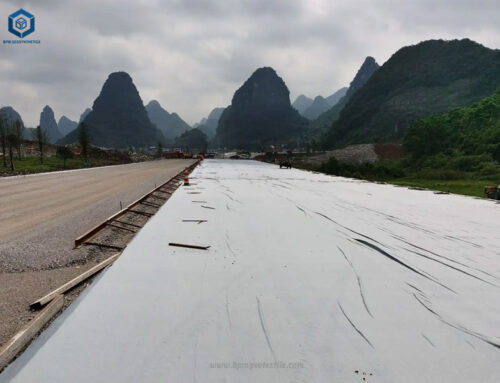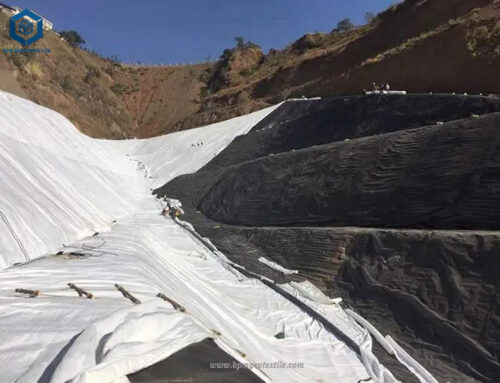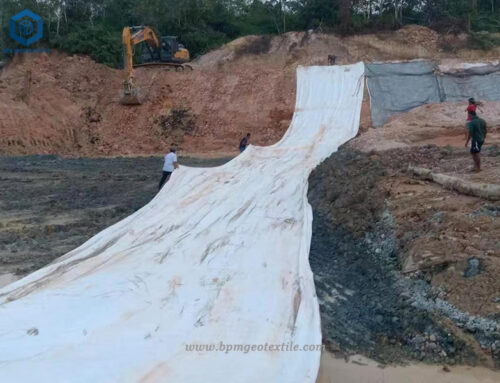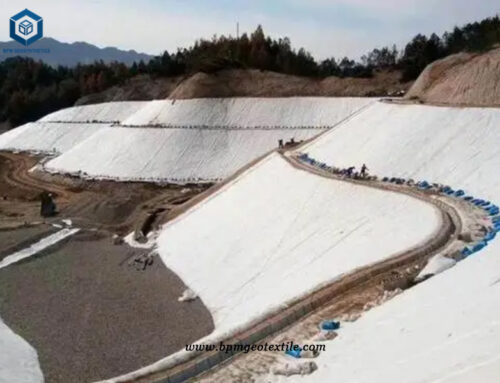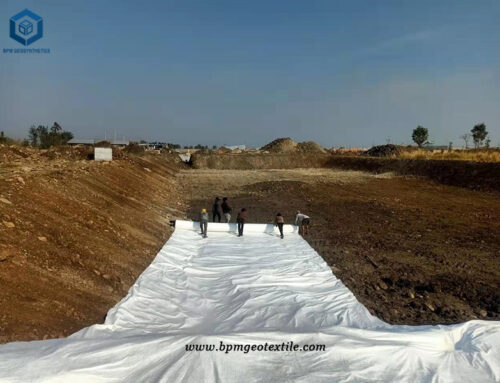Filament geotextile filter fabric consists of polyester continuous filament yarns that are heat bonded to retain their relative position. The interlocking fibers provide strength to the fabric. These filter fabrics offer exceptional water flow rates and are commonly employed for filtering soil fines in drainage applications. They are used in various ways, including as a wrapping material for perforated pipes, in trench drains, for erosion protection, and in combination with three-dimensional structures to create prefabricated drains. The high-quality filtration capabilities of filament geotextile filter fabrics make them effective in managing water flow and preventing soil erosion, ensuring the integrity and functionality of drainage systems and related structures.
1. What Is Filament Geotextile Filter Fabric?
Filament geotextile fabric is made from 100% UV-stabilized polypropylene. It’s mechanically bonded with continuous filaments, providing separation, protection, and filtration functions. These fabrics are durable and long-lasting, thanks to high-quality raw materials and the manufacturing process. They have longer surface fibers and a whiter color than short filament geotextiles.They’re thicker, creating three-dimensional voids that enhance hydraulic performance. Filament geotextiles also boast superior puncture resistance and creep resistance compared to polyester staple fiber geotextiles.
With excellent heat resistance up to 230°C, these fabrics see widespread use in various engineering projects. They’re employed in water conservancy dams, slope protection, channel isolation, seepage prevention, road construction, railway and airport foundations, filtration, drainage, soil slope reinforcement, retaining walls, pavement reinforcement, port projects, beach dikes, seaports, breakwaters, and more.
Specifications for filament geotextile filter fabrics typically range from 100g/m2 to 800g/m2, with widths available from 1m to 6m.
2. What Are Benefits of Filament Geotextile Filter Fabric?
Filament geotextile fabric offers several benefits for construction projects:
2.1 Heavy Duty and High Strength
Our filament geotextile filter fabric has a density of 6oz and a tensile strength of 350N. It is constructed from tough and durable PP non-woven material. Compared to other woven ground covers, it excels in erosion-proof, damp-proof, tear-proof, and long-lasting properties.
2.2 Exclusive Permeability & Soil-Friendly
The fabric is specifically designed for erosion control in major construction projects, setting it apart from regular landscape fabric. It facilitates proper drainage and is appropriate for use beneath concrete or pavement. Although it can be employed for retaining walls and walkways, its main function is to endure heavy loads and high traffic, rather than serving as a weed barrier.
2.3 Wide Usage Range
Our filament geotextile filter fabric is suitable for projects requiring drainage, separation, and filtration. It is perfect for applications such as French drains, erosion control, driveway underlayment, RipRap channels, retaining walls, and other construction projects.
2.4 Tailor-Made Solutions
We offer a wide range of options to provide tailored solutions that meet your specific requirements.
2.5 High Long-Term Resistance and Robustness
Our filament geotextile filter fabric is designed to exhibit long-term resistance to environmental factors while maintaining its robustness, ensuring its effectiveness and durability over time.
2.6 Expert Team Support
Our knowledgeable team is available to provide you with expert advice and guidance on selecting the appropriate filament geotextile filter fabric for your project.
2.7 Uniform Product Quality
Our filament geotextile filter fabric is manufactured to meet consistent quality standards, ensuring reliable performance and maintaining uniformity across the product line.
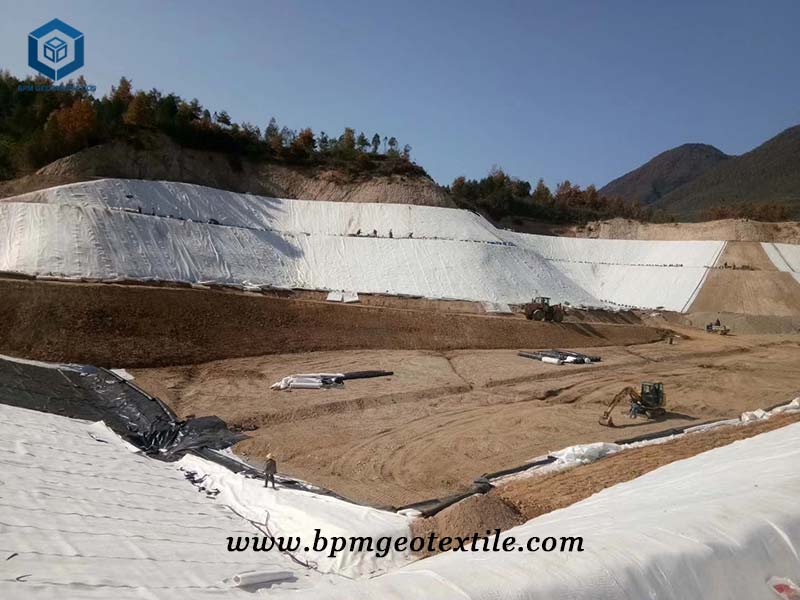
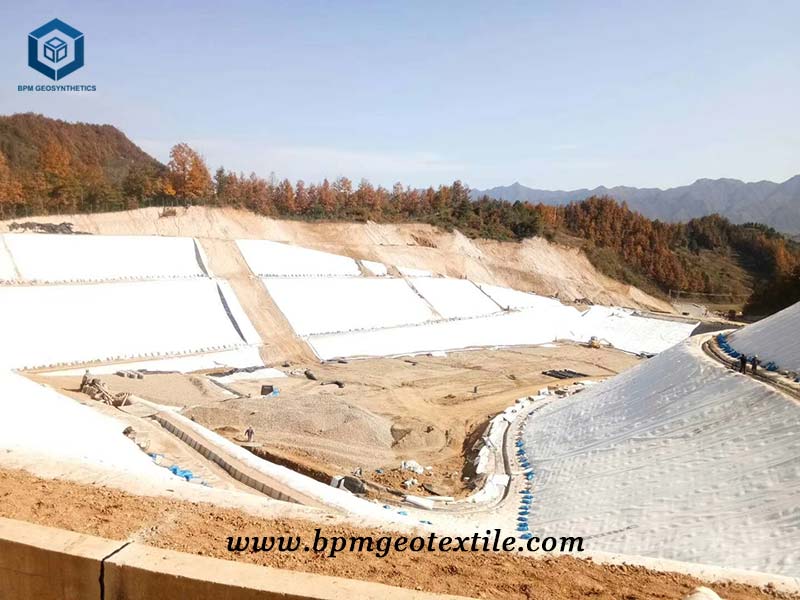
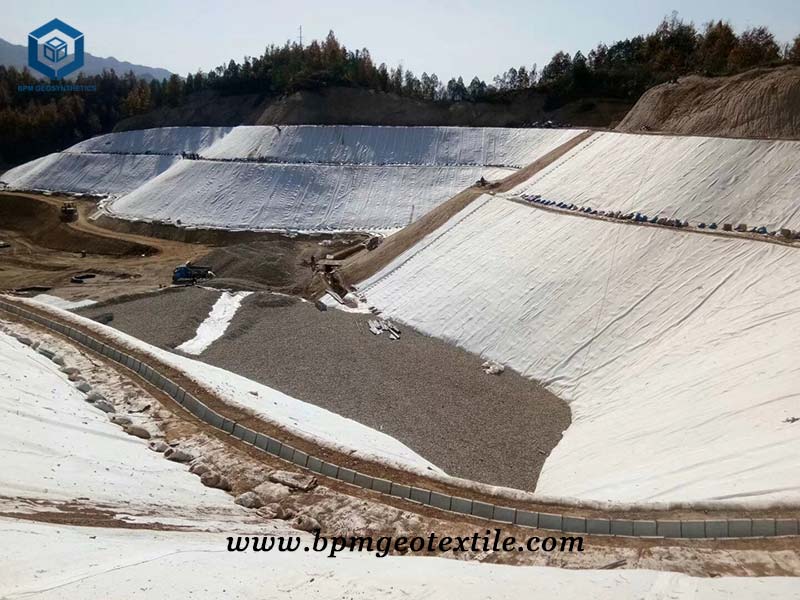
3. Case Study of Filament Geotextile Filter Fabric for Port Construction in Tsingdao
In April 2018, the Qingdao Port Road Construction Project Department reached out to BPM for information on the price of filament geotextile filter fabric. They were interested in utilizing this fabric in their project to enhance road durability, thanks to its high temperature resistance and bursting strength. BPM promptly responded to the inquiry and engaged in multiple discussions with the project leader to finalize the pricing details for the filament geotextile.
The project department sent representatives from materials and quality inspection to BPM’s factory. They inspected the 200g/m2 filament geotextile, checking the production process and fabric quality. The geotextiles met all necessary requirements for the project.
The project department quickly signed a contract with BPM for the filament geotextile fabric. The agreement solidified their partnership and ensured successful implementation of the geotextile in the road construction project.
4. Specifications of filament Geotextile Filter Fabric for Port Construction in Tsingdao
- Filament geotextile filter fabric specification: 200g/m2
- Quantity: 40,000 square meters
- Executive standard: GB/T 17638-2008
- Delivery time: two weeks
On April 29th, 2018, the filament geotextile filter fabric was delivered to the designated site of the Qingdao Port Road Construction Project in two trips. The quality and quantity of the on-site inspection were all in line with the requirements. The project leaders were very satisfied and praised us as the excellent suppliers.
5. About BPM Geosynthetics
BPM was established in 2010 and its geosynthetic products are widely sold at home and abroad. Our main products include geomembrane, geotextile, geocells, geosynthetic clay liners (GCLs), drainage boards, geogrids, and other geotechnical materials. We have been committed to the development, production and sales of geotechnical materials and post-installation services. Our geosynthetic products are widely used in highways, railways, aquaculture, sewage treatment, municipal engineering, mining, landfills, landscapes, and water conservancy projects.
If you have any questions or inquiries, please contact us, we will reply as soon as possible.

